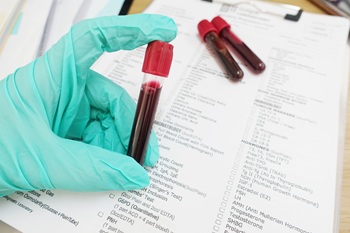CORRECTED CALCIUM LEVELS IN HYPOALBUMINEMIA ARE MISLEADING AND INACCURATE
Study finds albumin-adjusted calcium formulas are less accurate than unadjusted levels
Straight Healthcare
June 2025
June 2025

In plasma, approximately 50% of calcium circulates in the active ionized form, 10% is complexed with anions, and the remaining 40% is bound to protein, mainly albumin. If albumin levels are low, total calcium levels may not accurately reflect the amount of ionized calcium. In medical training, providers are often taught to correct calcium levels in the setting of hypoalbuminemia using formulas that incorporate albumin and total calcium levels. The most widely used formula is the simplified Payne formula: Corrected calcium (mg/dL) = measured total Ca (mg/dL) + 0.8 (4.0 - serum albumin [g/dL]). Despite this widely accepted practice, studies have not found these corrections to be accurate. To further evaluate the issue, a recent cross-sectional study published in the JAMA Network evaluated lab results from 22,658 patients who had their total calcium and ionized calcium levels measured simultaneously. The accuracy of 10 adjustment formulas for correcting total calcium levels was then measured. The results showed that unadjusted total calcium levels correlated as well and sometimes better with ionized calcium levels than the formula-adjusted values. For example, unadjusted total calcium showed a correlation (on a continuous numerical scale) with ionized calcium of 71.7% compared to 68.9% with the simplified Payne formula. When classifying patients into calcium status categories (hypocalcemia, normocalcemia, hypercalcemia), unadjusted total calcium agreed 74.5% of the time with ionized calcium compared to 63% with the simplified Payne formula. Furthermore, subgroup analysis in patients with concomitant hypoalbuminemia showed that formula-adjusted values were even less accurate than unadjusted levels in these subjects.
Corrected calcium levels are a cautionary tale on how easily some practices can become widely accepted in medicine despite a lack of rigorous scientific evaluation. Providers concerned about the accuracy of total calcium levels in the setting of hypoalbuminemia should check ionized levels directly and avoid using correction formulas.
Corrected calcium levels are a cautionary tale on how easily some practices can become widely accepted in medicine despite a lack of rigorous scientific evaluation. Providers concerned about the accuracy of total calcium levels in the setting of hypoalbuminemia should check ionized levels directly and avoid using correction formulas.
